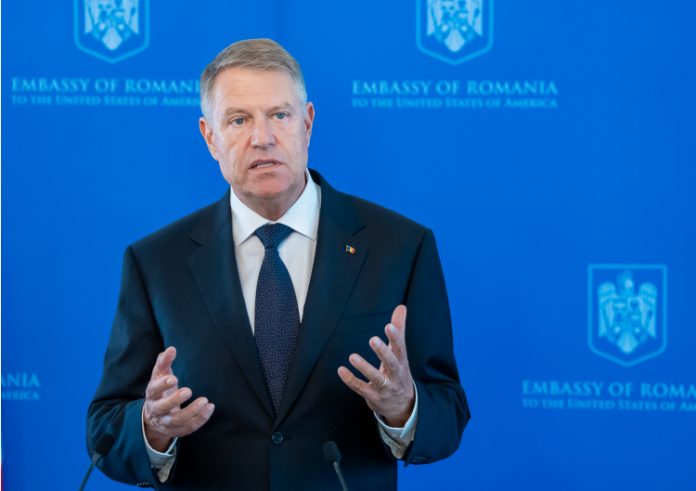Romania is a respected member of NATO and the European Union, a status that offers us security guarantees at the highest level, but also a solid platform for collaboration with international partners who share the same values, in order to develop and enhance stability and resilience against contemporary challenges, President Klaus Iohannis said on Friday in a message on Romania’s National Independence Day.
He added that since gaining independence, the Romanian state has made significant progress.
At the same time, Iohannis also referred to the current international context.
„In the current geopolitical context, dramatically marked by the Russian Federation’s war against Ukraine, through the resurgence of force law policies to the detriment of the rules-based international order, the lessons of the past acquire much deeper valences. The history of Europe, which major political and economic processes our country joined after 1848, shows us that the democratic exercise of sovereignty, in accordance with values and fundamental human rights, is the basis for the development of peoples. The independence of nations is the keystone of peaceful dialogue between countries and civilisations,” said Iohannis.
He underlined the importance of national sovereignty.
„The events currently taking place highlight the relevance of maintaining national sovereignty, a fundamental value of any nation, which must be permanently strengthened politically and economically, defended responsibly and seriously. Independence and national sovereignty cannot be separated from freedom and democracy, which need to be reaffirmed day by day through our actions and choices. Each generation contributes to their preservation, because only through the constant efforts of each of us can we be sure that fundamental rights and freedoms and the rule of law remain pillars on which our society develops harmoniously.”
According to Iohannis, „as we remember history, it is essential to reflect on the Romania we want to build for the younger generations and on what we can do now to ensure a future full of prosperity and well-being.”
Iohannis also talked about the context in which Romania won independence.
That was „a consequence of the historical process triggered by the Union of the Principalities in 1859, a crucial stage in the evolution of the Romanian people and of the completion of national unity through the Greater Union of 1918.”
„Achieving this ideal was possible because the Romanian society understood that only in complete freedom is the spiritual and material progress of a nation possible. Today we pay solemn homage to our forefathers who illuminated the path of the Romanian nation in the most complicated times, and we honour the memory of the Romanian soldiers who sacrificed themselves for the achievement of this dream of independence. The chronicle of the deeds that took place on the battlefields of Plevna, Grivita, Rahova and Smardan testifies to their courage and heroism.”
***
On May 10, 1877, a motion adopted by the Assembly of Deputies and the Senate became law by its promulgation by Prince Carol I, officially sanctioning the emergence of the new independent state. The independence thus proclaimed was consecrated and defended on the battlefield, through the heroism and sacrifices of the Romanian Army which, between April 1877 and February 1878, contributed decisively to the war against the Ottoman Empire.
By signing the Treaty of Berlin in July 1878, Romania’s state independence was officially recognised, thus consolidating the path towards the creation and completion of a unitary Romanian state and the evolution towards modernisation.
AGERPRES




